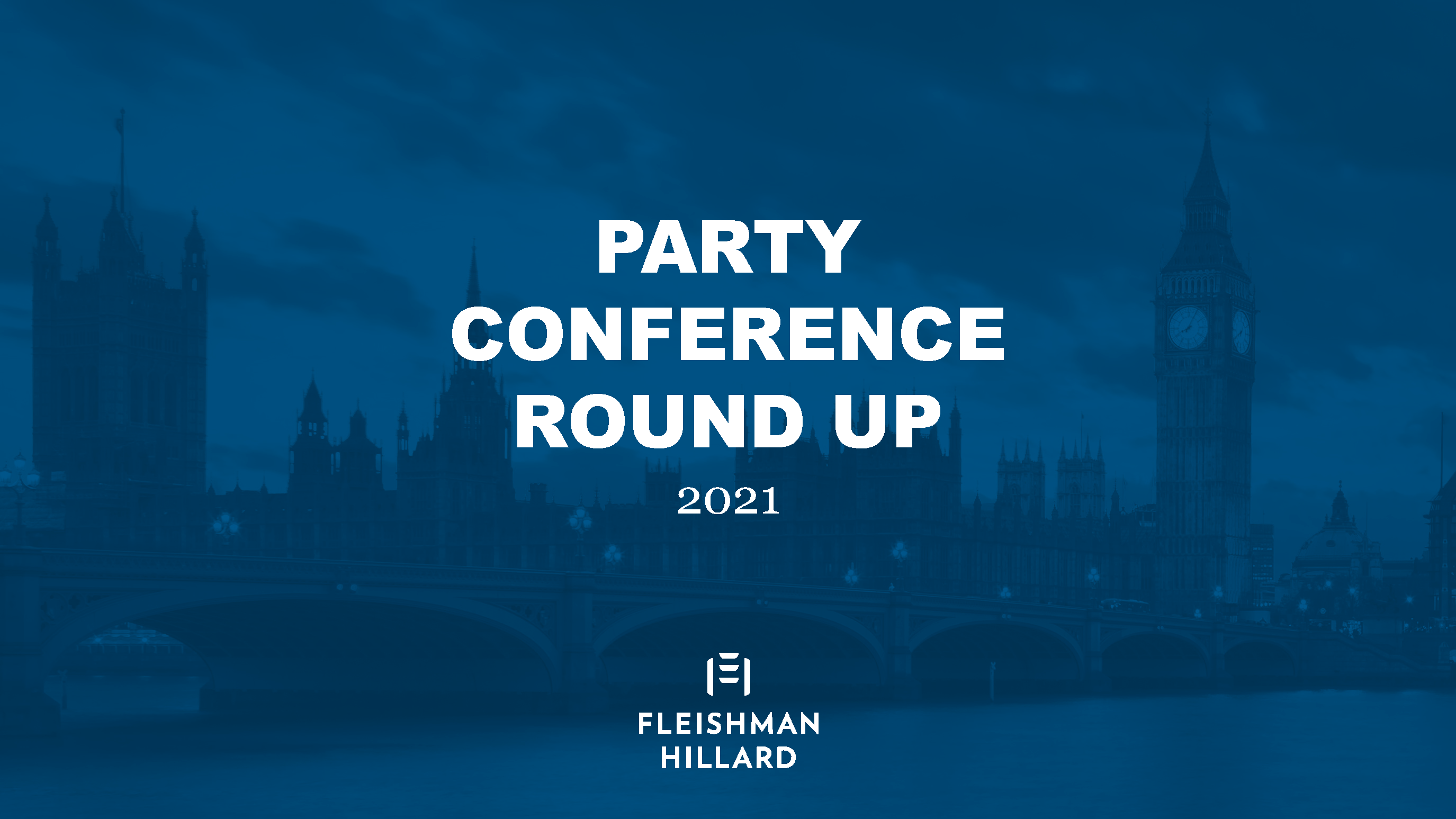Previewing the Conservative Party Conference 2021

By Tomos Davies, director
As Conservatives gather this week for their annual Conservative Party Conference 2021, the first in-person meeting since Boris Johnson’s triumphant 2019 general election victory, they do so against a turbulent and uncertain political backdrop.
As Britain’s forecourts run dry, the cost of living spirals, and with warnings of a winter of discontent on the horizon, Conservatives congregating in Manchester will hope for a dash of that fabled Johnsonian tonic to banish any Tory blues.
With the political capital gained from the Government’s perceived handling of the vaccine rollout programme long since exhausted, and with continued grumblings among Conservative members about the breaking of not one, but two manifesto pledges not to raise taxes and scrap the pension triple lock to fund social care spending, this could prove a challenging and uncomfortable Conservative Party Conference for Boris Johnson.
And yet, Johnson is a politician who continues to defy political gravity.
Astonishingly, the Conservatives arrive in Manchester with a healthy lead over Labour in the polls, whose own conference did little to convince voters that Sir Keir Starmer and his Shadow Cabinet are a credible Government in waiting.
Whilst this may reinforce Number 10’s view that the Conservatives can simply weather what now seems like an inevitable winter political storm, there can be no such room for complacency.
It’s imperative the Prime Minister uses this Conference and his own keynote speech on Wednesday to remind voters that this Conservative Government has unfinished business – not least an ambitious domestic policy agenda which, whilst derailed by the Covid pandemic, will be pursued with renewed gusto in the weeks and months ahead.
‘Delivery’ is the order of the day, as underlined by the Conservatives’ official party slogan of ‘getting on with the job.’ We can expect a big policy push on the NHS and social care, as well as those favoured Tory themes of law & order and enterprise.
Ahead of next month’s COP26 summit, we can also expect a flurry of policy announcements pertaining to the environment as the Government seeks to breathe momentum into its ten-point plan and accelerate the race to net-zero.
With a mounting cost of living crisis, there will also be pressure for Conservative ministers to offer more than just empathy and warm words from the conference stage and to set out what practical support might be offered to those struggling households across the country.
Whilst Chancellor Rishi Sunak is keeping his cards close to his chest ahead of the Budget statement later this month, we may yet get a few clues or hints about its content.
With Labour’s eye-catching promise to reform business rates in Brighton last week, might we expect a similar charm offensive from Johnson and Sunak as they seek to trump Labour’s announcement with their own reset moment with British business?
With a General Election possibly on the horizon as early as 2023, Johnson will no doubt want to remind those Red Wall voters that this is a Government committed to pursuing its ‘levelling up’ agenda with renewed zeal. But for many Conservative MPs and members alike, this vacuous slogan requires fleshing out, once and for all.
Michael Gove’s appointment to the newly renamed Department for Levelling Up, Housing and Communities is a step in the right direction.
And so, as I retire to the Midland hotel bar for that inevitable first glass of warm white wine, I can’t help but ponder the significance of this 2021 Conservative Party Conference. I have lost count of how often it has been said that this Conference is a key test of a political leader.
Whilst the next election won’t be won or lost in Manchester this week, this remains a key political moment for the Conservatives and an occasion not to be squandered. As the country re-emerges from some of our darkest days as a country, the Prime Minister has an opportunity to convince both Tory members and the British public that his is a Government with a clear-eyed sense of its mission and purpose, and which remains firmly in control of its political destiny and electoral fortunes.
Find Out More
-
Achieving Outsized Impact by Building Stronger Country Reputation
February 18, 2025


